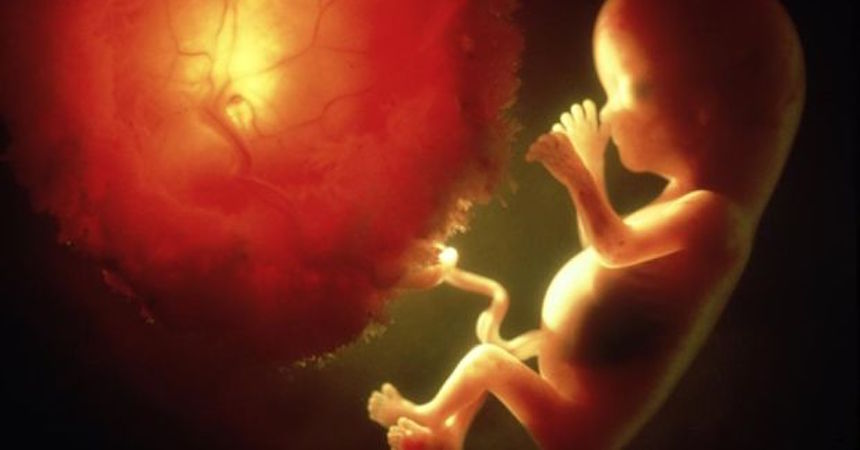Debate: Does God exist?
 It has been a while since I’ve posted a debate between a Christian and Atheist. This is one which took place a couple of months ago between David Wood and Michael Shermer:
It has been a while since I’ve posted a debate between a Christian and Atheist. This is one which took place a couple of months ago between David Wood and Michael Shermer:
"We are travellers…not yet in our native land" – St. Augustine
 It has been a while since I’ve posted a debate between a Christian and Atheist. This is one which took place a couple of months ago between David Wood and Michael Shermer:
It has been a while since I’ve posted a debate between a Christian and Atheist. This is one which took place a couple of months ago between David Wood and Michael Shermer:


Continuing through the Qur’an, today I read the following chapters:
Surah 108 – “Abundance” (Al-Kauther)
A three-verse chapter in which Allah tells Muhammad that He has granted him the most abundant good and cut off Muhammad’s enemies from good things in this life and the next.
Questions
Q1. Muhammad is told to “offer sacrifice to [Allah alone]”. What sacrifices did Muhammad offer?


Continuing with my chronological read through the Qur’an, today I read the following chapters: 87, 92, 89, 93, 94, 103 and 100.
Surah 87: “The most high” (Al-Ala)
Allah tells Muhammad that he will make him recite the Qur’an and remember it…unless God wants him to forget it. This relates to the rather troublesome subject of abrogation in the Qur’an where, even within the lifetime of Muhammad, some chapters were overridden or replaced.
Allah promises to lead Muhammad and his followers to true religion, but the wretched to the fires of Hell.
Questions
Q1. The text says “…the Hereafter is better and more enduring. Indeed, this is in the former scriptures. The scriptures of Abraham and Moses”. Where does the Pentateuch teach about the afterlife?


As previously mentioned, I am going to read through the Qur’an in chronological order from beginning to end. I will be writing up my notes from the chapters (“suwar”) each day, starting today with the chapters which were composed at the beginning of Muhammad’s ministry in Mecca: 96, 68, 73, 74, 1, 111 and 81.
Surah 96 – “The clinging substance”/”Recite” (Al-Alaq)
This short surah accuses a man of sinning because he sees himself as “self-sufficient”. We are reminded that God made man (with a vague description of human development), that God sees everything and that if the man does not repent, God will drag him by the hair and angels will throw him into Hell.
Questions
Q1. “Created man from a clinging substance”. Is this a reference to a fetus?
Q2. “Who taught by the pen”. Is this a reference to the Bible?

I first encountered Islam about six years ago when I was living in London. After meeting a Muslim for the first time, I decided that I should probably become more familiar with the religion, given that it is followed by 1.6 billion people, approximately 23% of the world’s population.
In my naiveté, I decided to start reading the Qur’an, the holy book of Islam. Oddly enough, I had been given a copy of the Qur’an at my (Catholic) school’s prize-giving about ten years earlier. I dug out my copy and started reading…
I’ll admit that I found the text of Qur’an very dry and I gave up after reading it when I was only about a third of the way through. Jumping straight into the Qur’an is very difficult, particularly if you don’t know much about Islam. It would have been helpful to know, for example, that the chapters (“suwar”) are not placed in chronological order, meaning that as I read sequentially through the chapters, I was jumping between very different periods in Muhammad’s life.

I’ve recently been reflecting on the subject of Islam and have concluded that the need for Christians to be familiar with this religion will only become greater with time. I’ve therefore decided to do more posts on this subject over the coming months. I have already written an introduction to Islam and the odd apologetics post, but in preparation for these upcoming articles, and for the sake of gaining credibility, I have decided to read the Qu’ran from cover-to-cover, but on this occasion I will read the chapters in chronological order.
Below you will see my reading plan, with the chapters arranged in (rough) chronological order. Discerning the exact chronology of the chapters is somewhat difficult for Muslim scholars to discern, particularly give that some chapters even contain verses from different periods. I found several different chronological orderings on the Internet, but I have chosen this one. There were other orderings I found on Christian websites, but in an attempt to limit Christian bias (which I will already bring to the text), I chose to use a chronology from a Muslim website.
My plan is to post some very brief thoughts about the chapters I read each day. I’ve also written a glossary of Islamic terms to make these easier to follow. From time to time, I’ll visit an Imam in San Diego, in order to clarify anything which I have found confusing.

There are many topics I’ve wanted to write about but either through lack of time or, more recently, writer’s block, I’ve never quite managed to tackle them. However, today I will begin to scratch a writing itch which I’ve had for some time. Over the next month or so, I will be publishing articles which relate to the classical proofs for the existence of God.

A few days ago, I was talking with a friend on Facebook who is a former Catholic. During our discussion, I mentioned a philosphical proof for God, known as the “Argument From Desire”. He asked me to explain it, so I wrote a brief summary of the proof and we spent a little bit of time going back and forth. So, drawing upon this conversation, I thought that this would be good topic with which to begin this series of posts on the philosophical arguments for God…
 If you’ve been involved in the pro-life movement, chances are that you’ve come across Abby Johnson, the former Clinic Director of Planned Parenthood who is now an outspoken pro-life advocate. In the abortion debate, Abby’s testimony carries particular weight given her former employment by the nation’s most well-known abortion provider. Well, I recently heard about someone with a similar story…
If you’ve been involved in the pro-life movement, chances are that you’ve come across Abby Johnson, the former Clinic Director of Planned Parenthood who is now an outspoken pro-life advocate. In the abortion debate, Abby’s testimony carries particular weight given her former employment by the nation’s most well-known abortion provider. Well, I recently heard about someone with a similar story…
A few weeks ago a reader told me about Patricia Sandoval, a lady who was also once an employee of Planned Parenthood. Like Abby, she is now a pro-life advocate and travels internationally sharing her testimony. Most of the videos on her website are in Spanish, but here’s one in English where she describes her (rather traumatic) journey:
I think stories like this need to be heard more often for a couple of reasons…
Firstly, I have been told many times by pro-choice friends that the abortion debate is over, abortion is legal now and that’s never going to change. I’m told that nobody’s opinion is going to be swayed on the matter. However, this is something which Patricia’s story clearly disproves.
The other reason why I think stories like this are important is that they remind us of the forgiveness, goodness and grace of God. They show us that it doesn’t matter how dire the situation or how dark our past, Jesus actively seeks out those who are hurting, to heal their wounds and to do something beautiful.
So with that in mind, please share this video on social media to remind the world that (a) the abortion debate is not over and (b) there’s nowhere that God’s grace cannot reach.